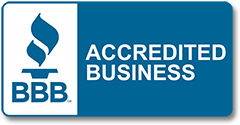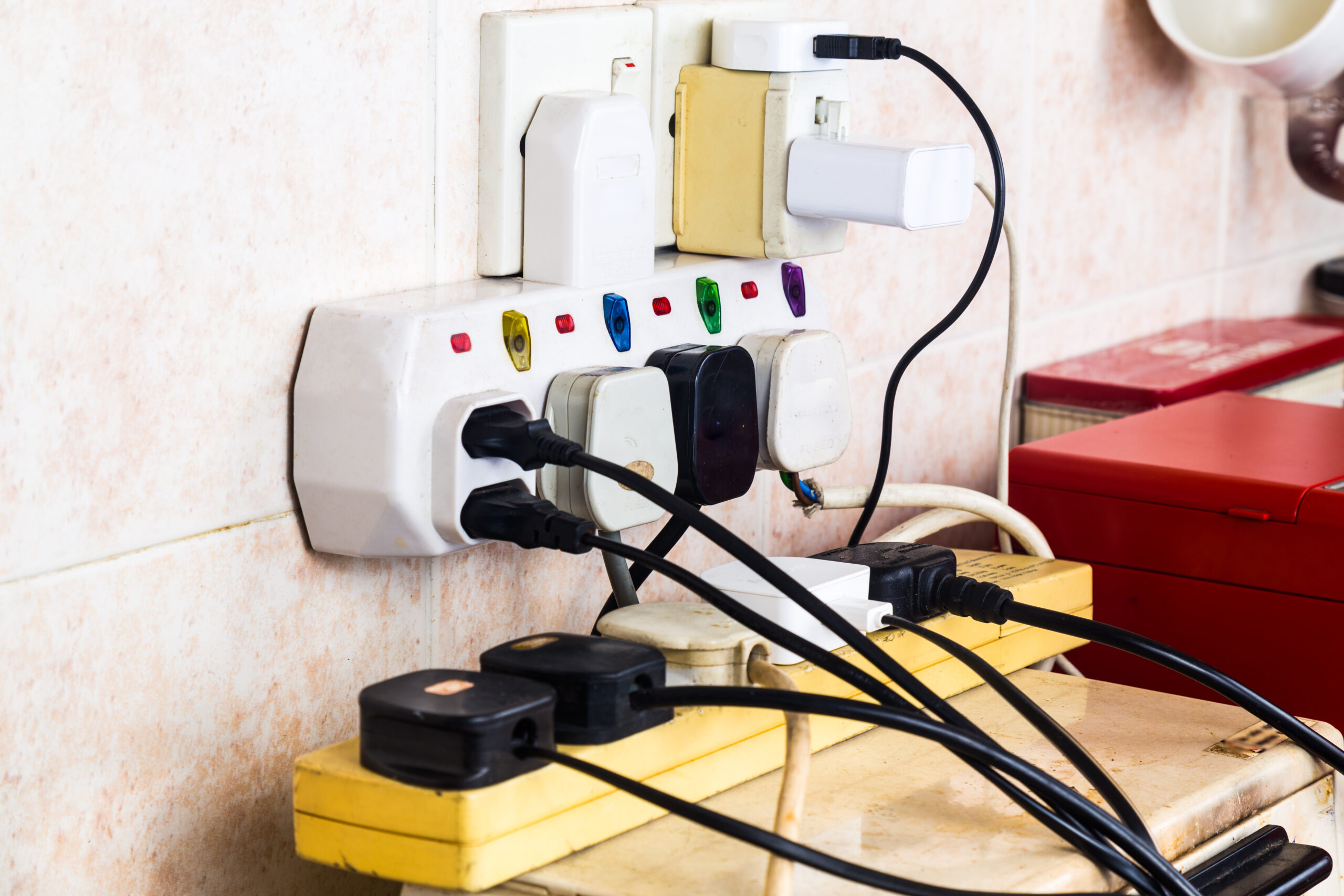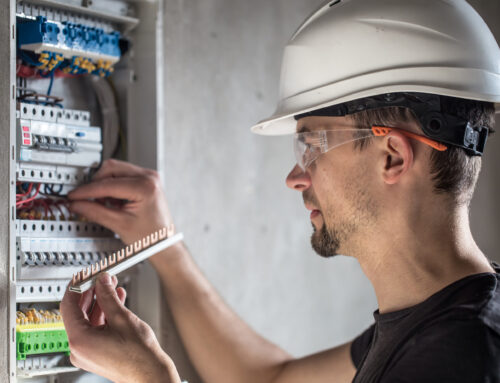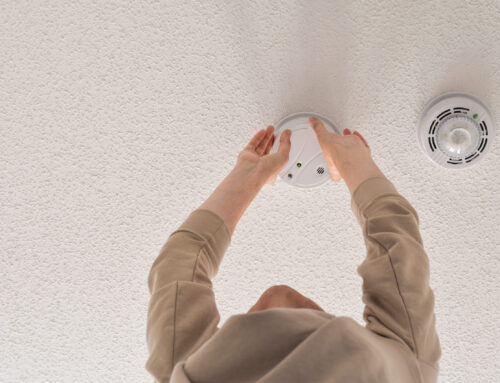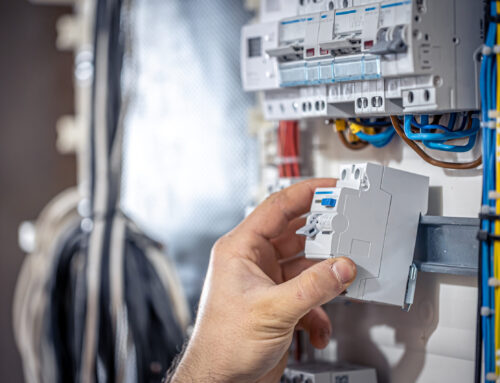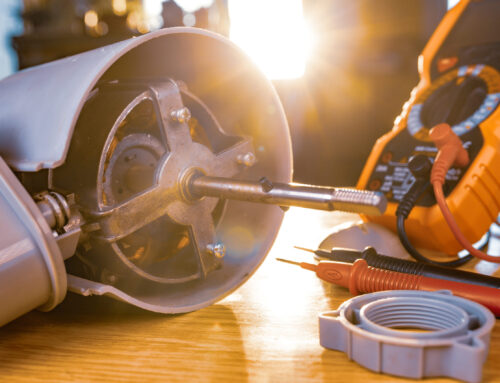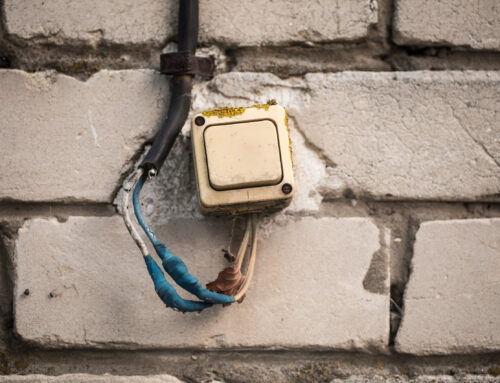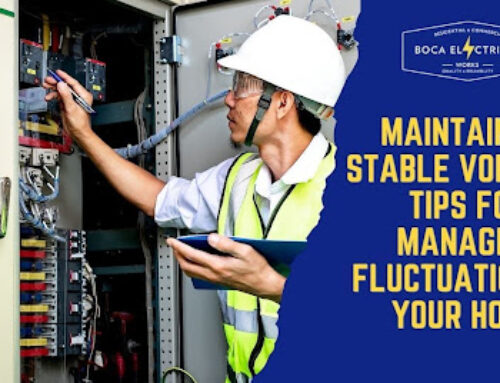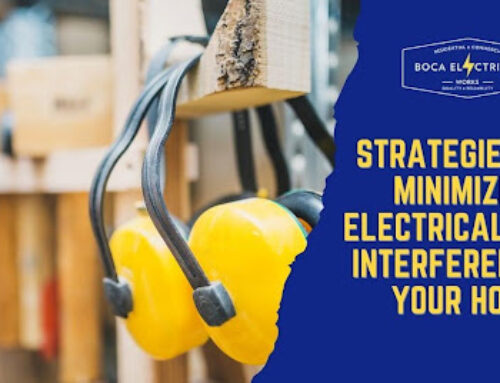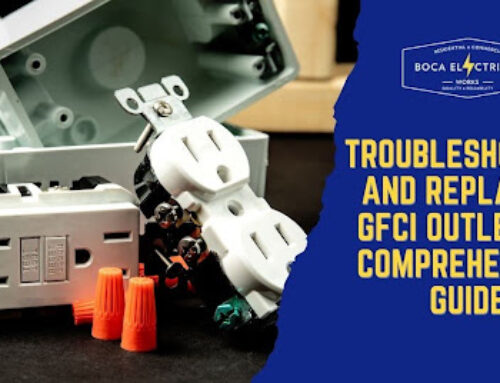Not long ago, we were called to a Boca Raton home after the homeowner noticed a burning smell near their electrical panel. What we found was alarming: overloaded circuits, no grounding, and wires melted together from overheating. It could’ve turned into a fire if they hadn’t called in time.
According to the Electrical Safety Foundation International (ESFI), around 51,000 home electrical fires occur in the U.S. each year. Many of them are preventable. Small oversights in your home’s electrical setup—like using the wrong extension cords or overloading outlets—can create big risks over time.
Whether you’re living in a newly built home or an older property with outdated wiring, knowing basic electrical setup safety tips for homeowners can protect your property, your appliances, and most importantly, your family. Here’s what every homeowner in Boca Raton should know.
Know Your Electrical Panel
Your electrical panel is where your entire home’s power is distributed and managed. Understanding how it works and recognizing when something’s wrong is critical to preventing hazards and keeping your system running smoothly.
Understand Breakers and Labels
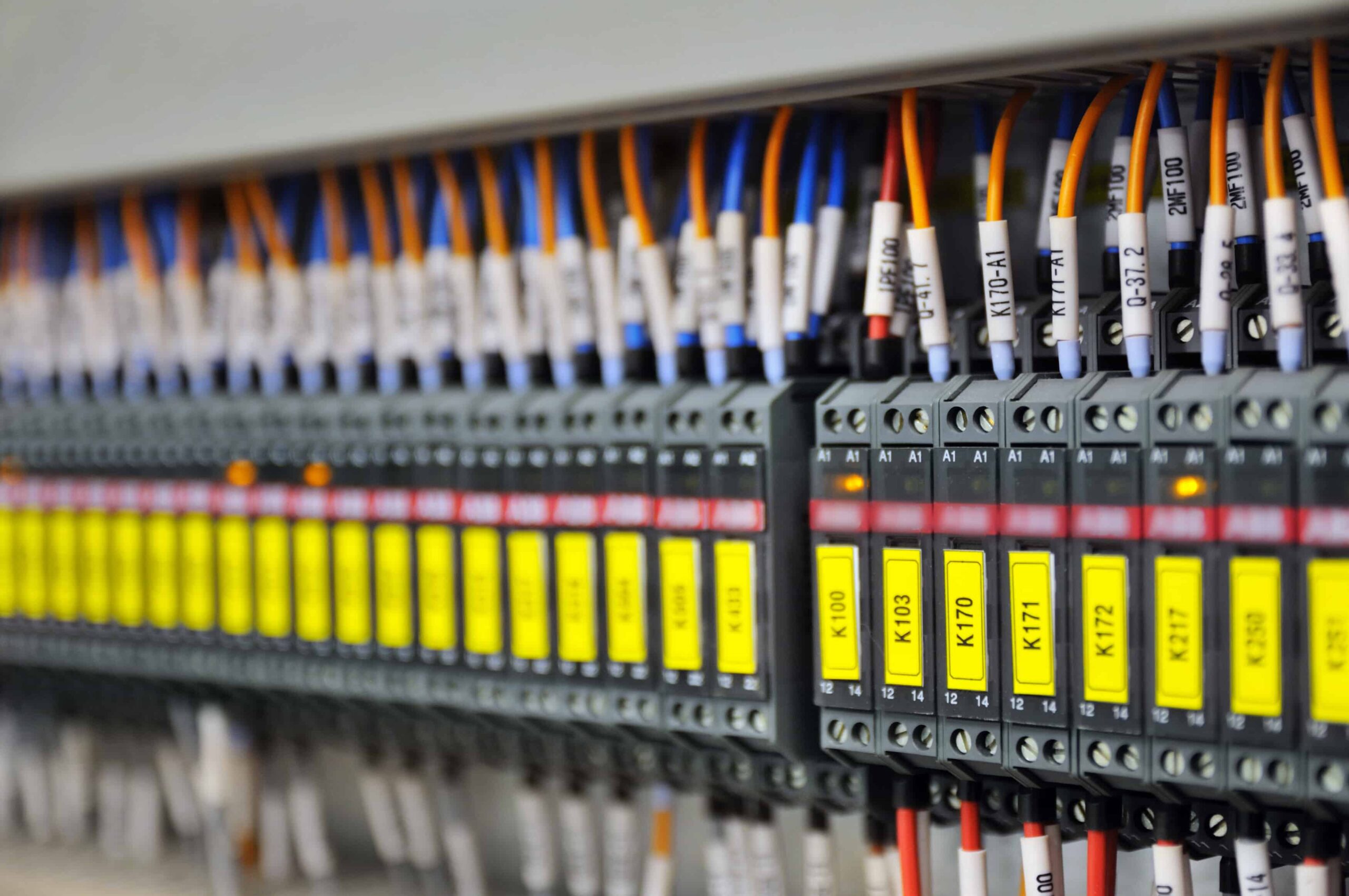
Every breaker in your panel controls a section of your home—your kitchen, living room, bathroom, etc. Make sure each switch is clearly labeled so you can quickly shut off power if needed. This can prevent injury during electrical issues and help electricians diagnose problems faster.
Don’t Ignore Frequent Tripping
A breaker that trips now and then might just be protecting the system. But if it happens often, there could be an underlying issue like faulty wiring, an overloaded circuit, or a short. Repeatedly resetting a tripped breaker without solving the cause can lead to fire.
Keep the Area Clear
Emergency access to your panel is important. Storing boxes, tools, or cleaning supplies in front of it can create obstacles. Always maintain at least a 3-foot clearance zone in front of your panel for safety and access.
Avoid Overloading Circuits
Overloaded circuits are one of the most common causes of electrical fires in residential properties. Knowing how much your circuits can handle—and how to distribute your power use—is a must.
Use Power Strips Wisely
Power strips offer extra outlets but they don’t increase the power capacity of a circuit. Use them for low-draw electronics like chargers and lamps. Avoid plugging high-wattage appliances into power strips.
Spread Out Your Appliances
Don’t cluster all your electronics or appliances into one outlet or area. Large appliances like microwaves, toasters, and hair dryers should each have their own dedicated outlet to prevent overheating.
Upgrade Outlets as Needed
If you constantly find yourself tripping breakers or relying on multiple extension cords, it’s a sign that your current outlet setup isn’t sufficient. Adding more outlets or installing dedicated circuits in high-use areas can improve safety and convenience.
Use the Right Extension Cords
Extension cords should never be a long-term solution. When used incorrectly, they can overheat, fray, or cause tripping hazards that lead to injury or fire.
Choose the Right Rating
Check the label for indoor or outdoor use and match the cord’s wattage capacity to the device. For example, using a light-duty cord for a heavy-duty appliance can result in overheating and potential fires.
Avoid Daisy-Chaining
Plugging multiple extension cords together, or “daisy-chaining” is extremely unsafe. It weakens the flow of electricity and increases resistance, which generates excess heat and raises the risk of fire.
Don’t Run Cords Under Rugs
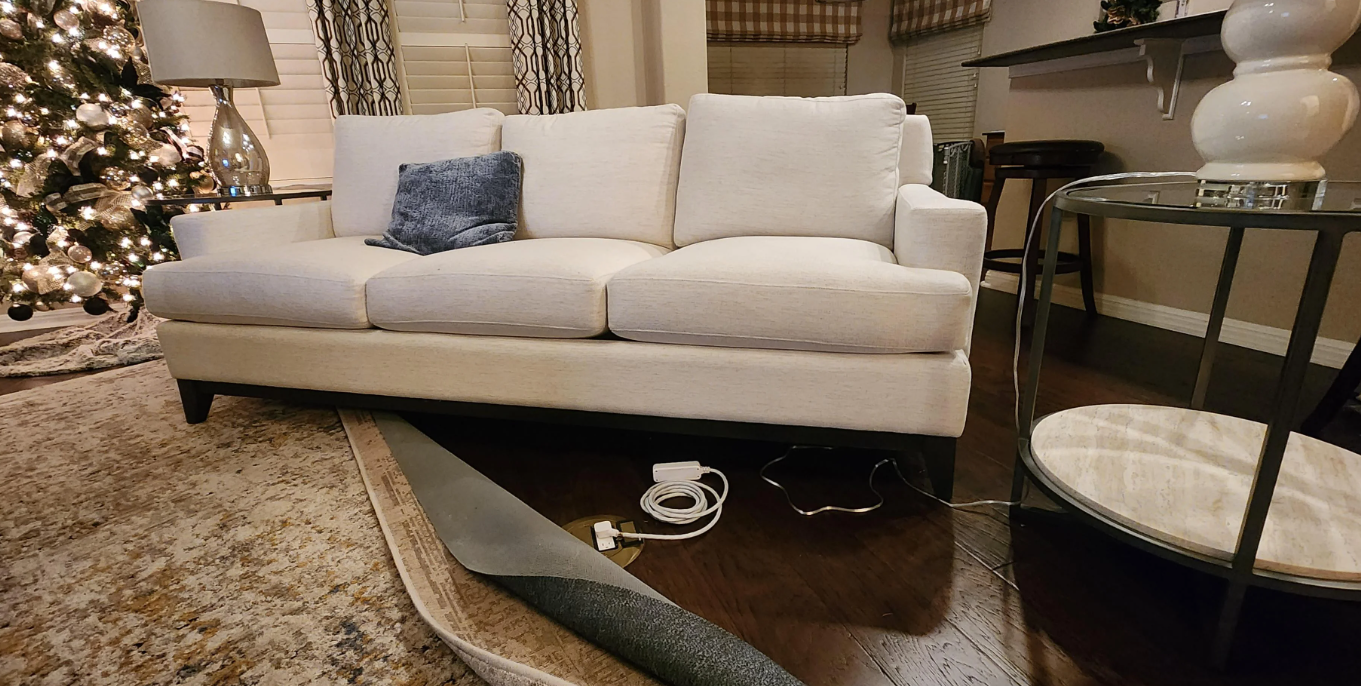
When cords are hidden under rugs or furniture, heat can’t escape and foot traffic can cause wear and tear. This is a common source of hidden fires in older homes or rental properties.
Keep Water and Electricity Separate
Electricity and moisture don’t mix. Bathrooms, kitchens, garages, and outdoor areas are all high-risk zones if not properly equipped and protected.
Use GFCI Outlets
Ground Fault Circuit Interrupters (GFCIs) are specially designed to shut off power instantly when they detect current leakage. They are legally required in any area where water might be present, and installing them is a top safety upgrade for any home.
Test Your GFCIs Monthly
Testing your GFCIs only takes a few seconds. Press the “Test” button on the outlet to see if the power cuts off. If it doesn’t, or the outlet doesn’t reset properly, replace it right away to maintain protection.
Regularly Inspect Your Wiring and Fixtures
Wiring that is outdated, damaged, or poorly installed is a ticking time bomb. Routine inspections can help catch problems before they lead to costly repairs or dangerous situations.
Watch for Warning Signs
Flickering lights, a burning smell, or outlets that feel warm are signs something is wrong. These issues may stem from loose connections, overloaded wires, or faulty fixtures.
Don’t Ignore Rodents
Rodents love to chew through electrical wiring. If you hear scratching in walls, find chew marks near outlets, or notice unusual circuit issues, have your wiring checked immediately to prevent hidden fire hazards.
Replace Old Wiring
If your home is over 40 years old and hasn’t had a wiring update, chances are it’s not up to today’s standards. Aluminum wiring, common in older homes, is known to expand and contract, causing loose connections. Replacing it with copper can increase safety and value.
Install and Test Smoke Detectors
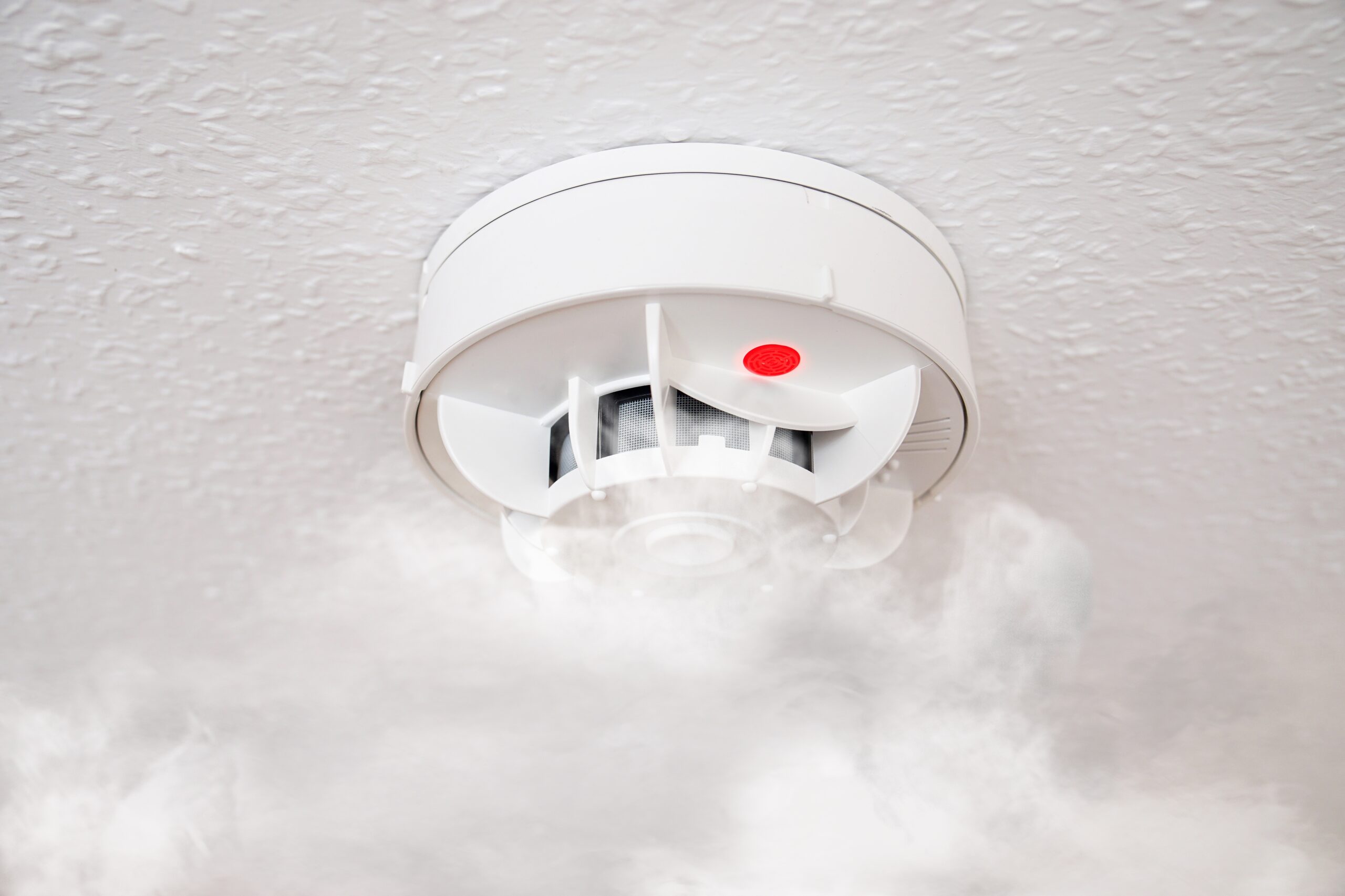
Smoke detectors are your first alert system in the event of an electrical fire. Keeping them working properly can be the difference between safety and disaster.
Install in Every Room
Install detectors inside every bedroom, outside sleeping areas, and on every level of your home. Don’t forget basements and attics—fire can start anywhere.
Test Monthly, Replace Every 10 Years
Test your alarms once a month by pressing the test button. Change batteries at least once a year, and completely replace detectors every decade—even if they still beep.
Call a Pro for Major Projects
While DIY has its place, many electrical tasks are simply too dangerous or complex for untrained hands. Know your limits and get help when needed.
Rewiring or New Lighting
Whether you’re upgrading lighting or rewiring a room, licensed electricians ensure everything is installed safely and to code. This protects your home, avoids fines, and ensures smooth inspections.
Panel Upgrades
Older panels can’t always support today’s technology. Upgrading your panel ensures you have enough power for modern appliances, electric vehicles, and smart systems—safely.
Home Inspections
An electrical inspection is a smart move before buying, selling, or remodeling a home. It helps identify problems early and gives you peace of mind knowing your system is up to par.
FAQs About Electrical Setup Safety for Homeowners
How often should I have a professional inspect my home’s electrical system?
It’s a good idea to schedule a full inspection every 3–5 years, or immediately if you move into an older home or notice warning signs like flickering lights.
Are there any smart home devices that can help improve electrical safety?
Yes, smart circuit breakers, surge protectors, and app-connected GFCI outlets can help monitor power usage and alert you to potential issues in real-time.
What should I do if I get a small electrical shock when touching an appliance?
Stop using the appliance immediately and contact an electrician. This could signal a grounding issue or internal fault that poses a serious risk.
Can weather affect my electrical system?
Absolutely. Humidity, lightning, and flooding can all impact outlets, wiring, and breakers—especially in areas like Boca Raton. Outdoor systems should be weatherproof and grounded correctly.
How Can Boca Electrical Works Help You
At Boca Electrical Works, we provide professional, affordable, and reliable electrical services to homeowners and businesses throughout Boca Raton, FL. We know what it takes to keep your home safe, efficient, and up to code.
We specialize in:
- Electrical panel upgrades and repairs
- Circuit breaker troubleshooting
- New outlet installation and wiring
- Indoor and outdoor lighting installation
- Electrical safety inspections and code corrections
Whether you need a quick fix or a full system upgrade, we’ve got the tools and experience to do it right.
Call us today at (561) 235-2513 or stop by our office at 158 NW 16th St #2, Boca Raton, FL 33432 to get a free estimate or schedule service. Let’s make your home safer—starting today.

